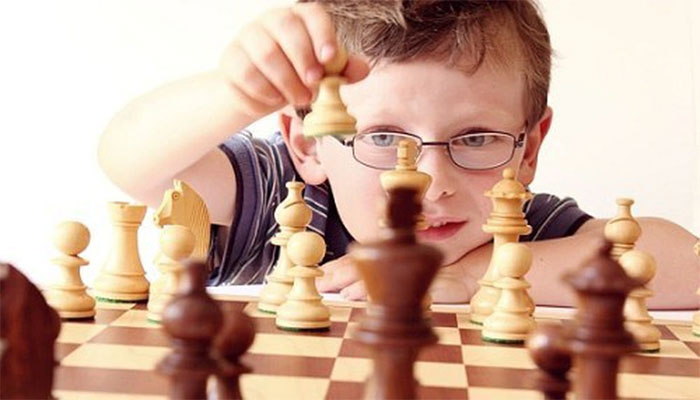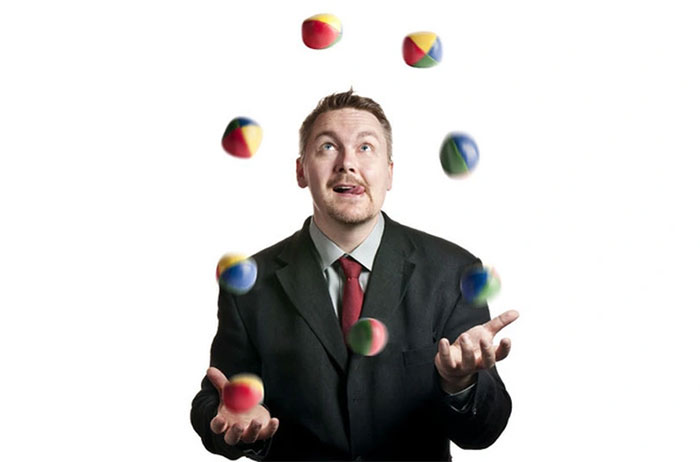Reading, writing, exercising, or even… juggling are habits that science has proven can enhance intelligence in specific ways.
Habits That Help Boost Your Intelligence
Intelligence is defined in various ways, including logical reasoning, abstraction, understanding, self-awareness, learning, emotional intelligence, memory, planning, and problem-solving. While it is difficult to measure, science has shown that you can actually become smarter by regularly practicing certain habits.
Writing

Writing by hand helps individuals process information more thoroughly.
In today’s digital age, with the rise of smart devices, handwriting is often undervalued. However, in an interview with Forbes magazine, Dr. Jordan Peterson shared that writing by hand helps people process information more thoroughly, evoking many past experiences and better directing thinking, awareness, actions, and emotions in the present.
Specifically, writing helps us articulate our thoughts. It can provide direction and clarify things, in contrast to the abstract thoughts swirling in our minds.
Reading

Reading is a great way to gain knowledge about a subject.
In 1990, in an interview with The Seattle Times, billionaire Bill Gates stated: “Every night before I go to bed, I spend an hour reading. It has become an essential habit in my life.” Many other famous CEOs share a similar habit.
Reading is an excellent way to acquire knowledge about a subject. Compared to watching television, reading is believed to provide higher levels of knowledge.
Exercising
While it’s not immediately clear how it directly affects a person’s intelligence, exercising is indeed one of the best habits to become smarter.
Numerous scientific studies indicate that engaging in physical activity can make you happier and improve your mood, which may lead to increased intelligence and sharpness.
Listening to Music

Learning music from an early age helps children develop their IQ and become smarter.
Many studies have shown that learning music from the age of four helped Wolfgang Amadeus Mozart—a musical genius—develop his intelligence and musical talent.
In fact, the term “Mozart Effect” is widely used to refer to the early learning of music, which helps children develop their IQ and become smarter, although it has not been conclusively proven that all types of music influence the development of neural structure and function.
Video Games
Video games can indeed help players become smarter and more agile, although this may not apply to everyone.
Many researchers have developed specific video games to train logical thinking, problem-solving, as well as reflexes and adaptability to different environments.
Learning a New Language
Science has proven that learning a new language enhances human thought processes. It has been shown to affect the structure of certain areas within the brain, thereby unlocking the brain’s potential.
Playing Chess

Playing chess helps children behave more intelligently, concentrate better, and develop logical thinking.
Chess is a simple game but employs very complex strategies. Chess experts have long discovered that this sport helps children behave more intelligently, focus better, and cultivate logical thinking. It is particularly beneficial for children with autism or behavioral disorders.
For children with developmental disorders, being good at chess often demonstrates a particular kind of intelligence. Autistic children often excel in this sport compared to their peers, while those with behavioral issues such as Attention Deficit Hyperactivity Disorder (ADHD) can improve their focus through chess.
Meditation
Studies show that meditation is a habit that can significantly improve soft intelligence and overall IQ.
Additionally, meditation is beneficial for physical health, helping to reduce stress, improve mood, and establish an emotional balance.
Juggling

Juggling increases white matter, enhancing motor and visual skills.
Although it may sound far-fetched, learning to juggle can help our brains recognize visual movement and coordinate hand-eye coordination, leading to sharper reflexes.
In a 2009 experiment, scientists demonstrated that juggling increases white matter, improving motor and visual skills, and the nerve cell connections in the parietal lobe—the area of the brain that links what we see with how we interact with it.


















































